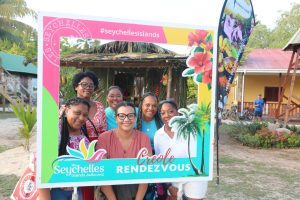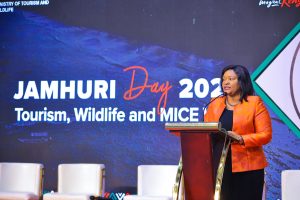Things are looking positive as the tourism sector heads towards recovery, says Hotel Association of Namibia (HAN) chief executive officer Gitta Paetzold.
Her optimism stems from data showing that a national hotel occupancy rate of 39,4% was recorded during May 2022, up from 36,5% in the prior month and 25,1% in May 2021.
“We are 70% towards the level of normality we had in 2019. Meaning, while the May 2019 figures for hotel rooms occupied climbed up to 55,8%, in May this year we were just under 40%, which is about 70% of normalcy,” she said.
This is the highest national occupancy rate since the outbreak of the Covid pandemic, and the occupancy rate for May 2022 is the first monthly data to surpass February 2020 figures.
According to a Simonis Storm analysis of the data year-to-date (YTD), the national occupancy rate averages 29,1%, compared to 22,5% for the same period in 2021, showing an improvement in bookings made with hospitality establishments nationwide.
The proportion of Namibian visitors at local establishments continues on to decline. During May 2022, 30,6% of guests were Namibians, compared to 37,7% during the prior month and 83,3% in the second quarter of 2020.
“Most visitors in May 2022 came from Germany, Switzerland and Austria (32,1%), South Africa (8,5%), France (7,9%), Benelux (4,8%) and the United Kingdom and Ireland (2,7%) during May 2022,” said Simonis.
“As specials to locals disappear and tourist inflows improve, we see a higher proportion of foreigners – who arguably have great spending power. This will benefit local hospitality establishments and lead to positive spill-over effects in other industries such as financial services retail, car rentals, restaurants, and informal businesses like crafts and general services,” added Simonis.
COASTAL VISITS DECLINE
Regarding the purpose of travel into Namibia, HAN data say 94,6% came for leisure, 2,8% for business and 2,6% for conferences.
Hospitality establishments in the central area recorded the highest occupancy rate (47,7%), followed by the northern area (41,7%), coastal area (35,5%) and southern area (35,3%) in May 2022.
Tourists visiting the central and northern areas have been on an increase YTD, whereas visits to the coastal and southern areas are on the decline.
Prior to the pandemic, the northern area typically hosted the largest number of tourists during Namibia’s peak tourist season (May to August).
Foreign and regional arrivals at all airports in Namibia dipped slightly in May 2022 by 10,3% m/m and 9,1% m/m respectively. Total foreign arrivals were 11 732 in May 2022, compared to 13 047 in April 2022.
“On an annual basis, foreign and regional arrivals increased by 129,0% y/y (year-on-year) and 80,5% y/y respectively. YTD, Namibia received a total of 43 012 foreign arrivals at all its airports, compared to 18 360 during the same period last year. This represents a significant recovery in tourist flows and could be the result of aggressive marketing by various stakeholders in attracting foreigners to Namibia, declining Covid cases globally and new airline routes to Namibia being offered.”
Regional arrivals typically exceed foreign arrivals in the first months of each year, however, foreign arrivals have been lower than regional arrivals since January 2021. This potentially indicates that overseas travellers are more cautious in choosing their holiday destinations or face more stringent travel limitations compared to regional tourists.
Paetzold said: “Namibia is rated as a country with one of the highest quality medical services in southern Africa – apart from South Africa, and for the past few years we have already seen a very sizeable number of regional nationals, especially Angolan, travel to Namibia for medical reasons, be it dentistry, optometry, surgery and other medical treatment”.
Credit:By Matthew Dlamini- Namibian







